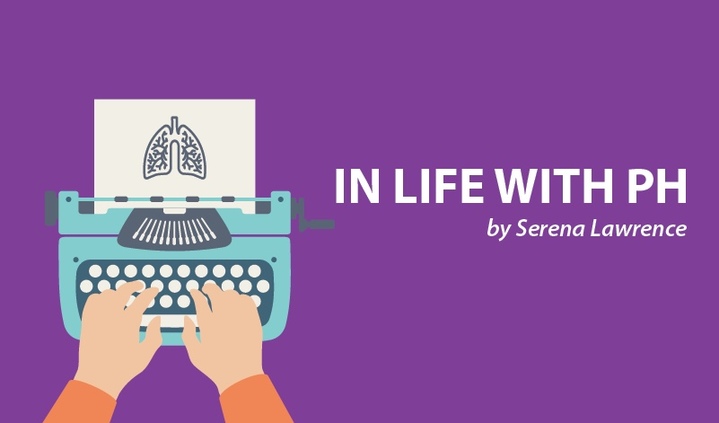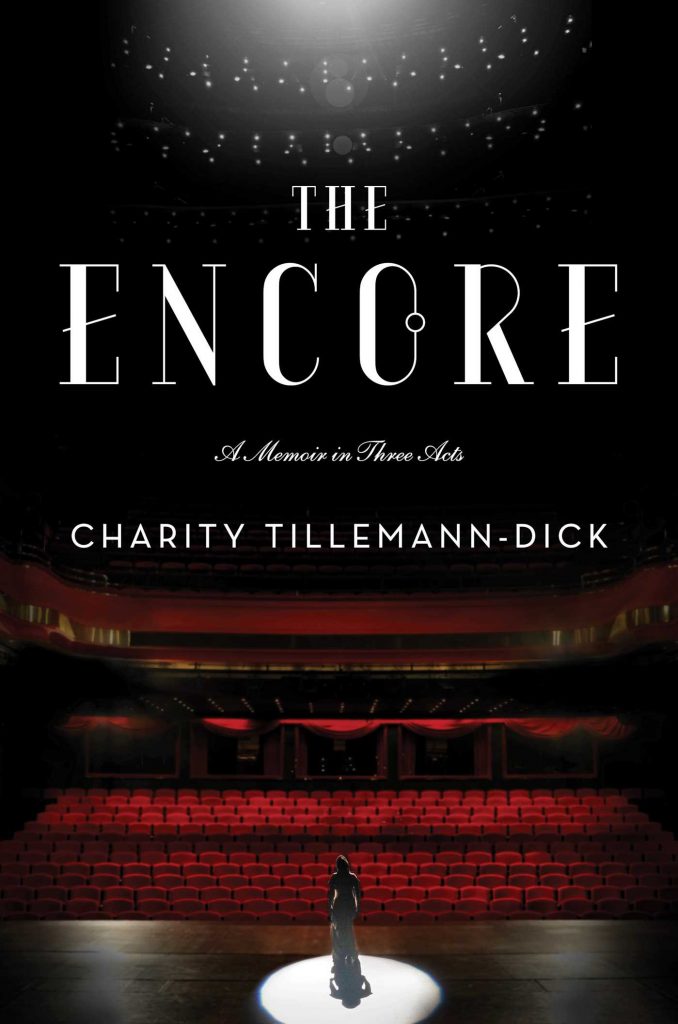Interview with Charity Tillemann-Dick, Part 1

Photo from https://fulbright.org/speakers-and-performers/

Charity Tillemann-Dick is a soprano and the recipient of two double lung transplants. Told she might never sing again, Charity instead became a top-selling classical recording artist who has performed across the United States, Europe and Asia.
She also served as a national spokesperson for the Pulmonary Hypertension Association after receiving her diagnosis of idiopathic pulmonary arterial hypertension (IPAH) in 2004. Following her IPAH diagnosis, two double lung transplants and a fight against cancer, Charity has remained open, sharing her story across media platforms and in person, including TEDxMidAtlantic in Washington, D.C., and speaking at the 2016 Fullbright Association Conference.
In fact, Charity’s transparency about her IPAH diagnosis is how we first connected. When I was I first diagnosed with IPAH, I went onto a now-defunct message board, looking to find hope or encouragement. All but one of the messages I received on the message board were discouraging. That lone message of hope was from Charity.
Charity now will be sharing her story in a memoir, “The Encore: A Memoir in Three Acts,” which will be released Oct. 3.
In this Q&A, she discusses her IPAH diagnosis, life following two double lung transplants and cancer, and the path she took to write her first memoir.
Would you be able to share when you were diagnosed with pulmonary hypertension, and your life leading up to your first double-lung transplant?
Charity was diagnosed with IPAH at 20 years old, following four fainting spells in a span of 9 months in 2004.
“I lived with PH for 5 years. In that final year, there were a number of deaths in my family and my health just went into a tailspin. But I did fall in love with the man who became my husband and best friend. I’ve got to say, being married to him is among the very best things that has ever happened to me.”

Charity’s memoir comes out on October 2017. (Photo from Simon and Schuster)
You have shared bits about your diagnosis and transplant story on various platforms like TED talks, and now with your book, “The Encore: A Memoir in Three Acts.” Do you find it difficult to be so open about some of the challenges you have faced? What motivated you to open up about your experiences and write a memoir?
Charity says that sharing comes naturally to her as the fifth of 11 children and as a former reporter for Reuters.
“I had no idea how challenging reliving the most painful periods of my life would be. At some point, the motivation was that I just had to finish, but the deeper I got into the process, the more I wanted to do justice to the story. The whole thing became this tortured, beautiful process of coming to really know myself by acknowledging the role I played in others’ lives and that they played in mine.”
You have not only battled pulmonary hypertension, faced organ rejection, and received two double-lung transplants, but you have been fighting cancer as well. Where do you draw your strength and joy from? Do you have any advice for readers who are facing adversity with their health?
“Create. Work hard. Love. It doesn’t really matter what you create or work hard at or who you love, only that you do it. Without those three worthy distractions, I would have died long ago.”
Your memoir is divided into three acts. Is there a part of your life that you personally reflect on the most fondly? Is there a part in your life that is difficult to revisit and write about?
“It dawns on me that my happiest times were often those when I felt the most independent. The first time was shortly before I was diagnosed with PH while I was living in Budapest. It was this crazy dream; I wanted to start a career as an opera singer.”
“[And] … The political campaign where I volunteered and met my husband was just this very bright memory. Again, there were these people who cared deeply about making the world a better place. We didn’t fall in love romantically then – it took a couple of years – but I gain tremendous hope and strength from people who really believe in their power to make the world better through music, through writing, through government, medicine, or their families. They make me a better person.”
The hardest thing for Charity to revisit in writing her memoir was her many illnesses – and how those illnesses impacted her loved ones.
“It is easier to think of illness as something that impacts just me. In my mind, I can be heroic, long-suffering and the picture of gritty resilience. When I realize that all of the people I love most have worked and sacrificed because of my challenges, that picture looks more crowded and less simple. There is more pain in a group picture – someone almost always looks bad, which isn’t fair because in the right light and at the right angle, they’re all beautiful. The problem is, telling my story, I’m not always able to show them off to their best advantage. Writing about that full picture was very hard.”
* Please check back next week to read part two of Charity’s interview.
***
Note: Pulmonary Hypertension News is strictly a news and information website about the disease. It does not provide medical advice, diagnosis, or treatment. This content is not intended to be a substitute for professional medical advice, diagnosis, or treatment. Always seek the advice of your physician or other qualified health provider with any questions you may have regarding a medical condition. Never disregard professional medical advice or delay in seeking it because of something you have read on this website. The opinions expressed in this column are not those of Pulmonary Hypertension News or its parent company, Bionews Services, and are intended to spark discussion about issues pertaining to pulmonary hypertension.








Leave a comment
Fill in the required fields to post. Your email address will not be published.